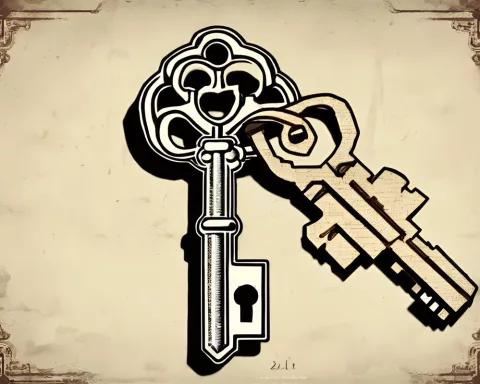The South African Parliament has approved two key legislative bills – the Division of Revenue Amendment Bill and the Correctional Services Amendment Bill, in a significant democratic decision-making process. The Division of Revenue Amendment Bill aligns with the Medium-Term Budget Policy statement, while the Correctional Services Amendment Bill corrects unconstitutional sections of the Correctional Services Act of 1998 and promotes community participation in the parole system. These bills now await the president’s assent before becoming law, showcasing the active and dynamic nature of South Africa’s legislative processes.
South African Parliament Approves Key Legislative Bills
The National Council of Provinces (NCOP) has approved the Division of Revenue Amendment Bill and the Correctional Services Amendment Bill, marking a significant milestone in South Africa’s democratic decision-making process. The Division of Revenue Amendment Bill aligns with the Medium-Term Budget Policy statement and handles adjustments in schedules, provincial, and local government allocations. The Correctional Services Amendment Bill corrects unconstitutional sections of the Correctional Services Act of 1998 and promotes community participation in the parole system. Both bills now await the president’s assent before becoming law.
In an essential legislative development, the National Council of Provinces (NCOP), a vital element of the South African Parliament, has endorsed two substantial bills: the Division of Revenue Amendment Bill and the Correctional Services Amendment Bill. These bills, initially passed by the National Assembly (NA), another house of Parliament, were then sent to the NCOP for approval. This marked a significant milestone in South Africa’s democratic decision-making process.
The Division of Revenue Amendment Bill
The Division of Revenue Amendment Bill, initially presented to Parliament by the Finance Minister, Mr Enoch Godongwana on 1 November, aligns with the Medium-Term Budget Policy (MTBPS) statement. According to the Money Bills Amendment Procedure and Related Matters Act No 9 of 2009 (as updated by the Money Bills Amendment Procedure and Related Matters Amendment Act, No13 of 2018), this legislation was necessary to adapt to a changed fiscal framework, given that the adjustments budget was modifying the Division of Revenue Act for the ongoing year.
This Bill’s purview expands across multiple fiscal domains, handling adjustments in schedules and provincial and local government allocations. It also addresses gazetted conditional grant frameworks and allocations. After discussing it in a plenary session, the NCOP, in alignment with the Select Committee on Appropriation’s report and its recommendations, approved the Division of Revenue Amendment Bill.
The Correctional Services Amendment Bill
Simultaneously, the NCOP approved the Correctional Services Amendment Bill in the plenary. This legislation, suggested in June this year, aimed at correcting the unconstitutional sections of the Correctional Services Act of 1998. These sections, specifically 88A(1)(b) and 91, had been ruled constitutionally invalid by a Constitutional Court verdict in December 2020 due to their failure to provide sufficient independence to the Judicial Inspectorate for Correctional Services.
Furthermore, the Correctional Services Amendment Bill plans to bring modifications to the parole system, promoting participation from the community. It also requires the Department of Correctional Services to devise suitable provisions for accommodating disabled prisoners, wherever feasible. Considering the approaching Constitutional Court deadline of 3 December 2023, the NCOP Plenary chose to back this Bill.
With the NCOP’s endorsement, these Bills now await the president’s assent, following the constitutional provision. Once the president gives his assent, they will transform into law, consequently altering South Africa’s legislative landscape in their respective domains.
Role of Citizens and Key Figures in Parliament
Interestingly, any South African citizen aged 18 or above can indirectly participate in the nation’s Parliament merely by voting in elections. This democratic right exemplifies the inclusive nature of the country’s political structure.
Significant contributors to South Africa’s parliamentary proceedings include figures like Mr Michael Bagraim. Representing the Democratic Alliance on the provincial list for the province of Western Cape, Mr Bagraim is a part of vital committees such as the Portfolio Committee on Employment and Labour.
Indeed, the NCOP’s recent actions highlight the active and dynamic nature of South Africa’s legislative processes. As the country’s lawmakers continue to discuss and pass critical pieces of legislation, they exhibit the proactive role of Parliament in molding the nation’s current state and future.
What are the Division of Revenue Amendment Bill and the Correctional Services Amendment Bill?
The Division of Revenue Amendment Bill is a legislative bill that aligns with the Medium-Term Budget Policy statement and handles adjustments in schedules, provincial, and local government allocations. On the other hand, the Correctional Services Amendment Bill corrects unconstitutional sections of the Correctional Services Act of 1998 and promotes community participation in the parole system.
Why were these bills approved by the National Council of Provinces (NCOP)?
The NCOP approved these bills as they align with the ongoing fiscal framework and aim to correct unconstitutional sections of the Correctional Services Act of 1998. The Correctional Services Amendment Bill also promotes community participation in the parole system.
Who presented the Division of Revenue Amendment Bill?
The Finance Minister, Mr Enoch Godongwana, presented the Division of Revenue Amendment Bill to Parliament on 1 November.
What was the role of the National Council of Provinces (NCOP) in approving these bills?
The NCOP is a vital element of the South African Parliament, and it endorsed the Division of Revenue Amendment Bill and the Correctional Services Amendment Bill after discussing them in a plenary session. The NCOP’s approval marked a significant milestone in South Africa’s democratic decision-making process.
What is the role of citizens in South Africa’s parliamentary proceedings?
Any South African citizen aged 18 or above can indirectly participate in the nation’s Parliament merely by voting in elections, demonstrating the inclusive nature of the country’s political structure.
Who are some key figures in South Africa’s parliamentary proceedings?
Significant contributors to South Africa’s parliamentary proceedings include figures like Mr Michael Bagraim, who represents the Democratic Alliance on the provincial list for the province of Western Cape and is a part of vital committees such as the Portfolio Committee on Employment and Labour.












